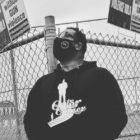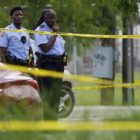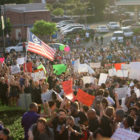
On March 22nd, 2012, The Lens welcomed five panelists and over 100 attendees to its third salon at the Ashe Cultural Arts Center, which focused on the status of the juvenile justice system in the New Orleans area. Panelists were queried by the moderator on issues surrounding the new French Quarter youth curfew, LGBTQ youth issues in juvenile facilities, the rebuilding of the Youth Studies Center, the school to prison pipeline, and the New Orleans Parish Prison. Audience members were then invited to pose their own questions to the panel. Panelists:
Dana Kaplan - Executive Director of Juvenile Justice Project of Louisiana
Wes Ware - Founder & Director of BreakOUT! Michael Bradley - Deputy Chief District Defender at Orleans Public Defenders
Eden Heilman - Senior Staff Attorney at Southern Poverty Law Center
Alison McCrary - Soros Justice Advocacy Fellow at Safe Streets/Strong Communities
This panel was one in a series of events held by The Lens to engage readers and New Orleans stakeholders on current issues.






